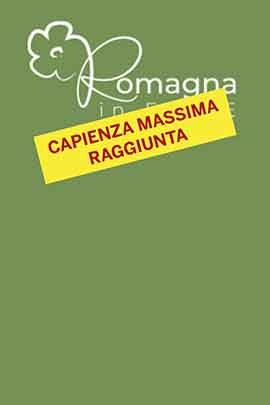Thirty-eight concerts in the most beloved of the city’s Byzantine Basilicas, and one of the eights monuments in Ravenna part of the UNESCO World Heritage site; nineteen different programmes that travel across centuries of sacred music, from Palestrina to Bach and from Vivaldi to John Cage, from the Baroque age to the 20th century, from orthodox chants to the Marian devotion, among mystery plays, masses, lauds, original works, and – why not? – live electronics. When, if not at the time of the Vespers? Where, if not in the Basilica of San Vitale, shining with mosaics? From June 6 to July 14, in collaboration with the Opera di Religione dell’Arcidiocesi di Ravenna-Cervia and this year also with the patronage of the Pontifical Council for Culture, the 30th edition of Ravenna Festival again features the Vespers at San Vitale, the daily pilgrimage at 7 pm, in the company of choirs, ensembles, soloists, including 14 proposals selected through an international call. A wealth of history, art, and spirituality to discover with the symbolic 1-euro ticket.
The opening event is …e immediatamente diventai sapiente (June 6, 7, 9, 10), a mystery play on Hildegard von Bingen, created by the Music Research and Production Centre Agon on Guido Barbieri’s text, while Domus supra petram (June 8) of the LiberaVox Ensemble focuses on Giovanni da Palestrina. Salmi (June 11 to 13) is a live electronics performance by Maurizio Alfonsi, in a dialogue with the church’s architecture. Pieces dating back to the 12th and 13th centuries feature in Ave gloriosa mater (June 14 and 15) of the recorder duo Il Giardino delle Muse; while Taiwanese cellist Jo-Chan Lin performs four of the six Bach’s suites for Violoncello solo (June 17 and 18). In Oreb (June 19 and 20) the soloist is Dimitri Grechi Espinoza’s sax, discovering the “breath” of sacred places. Another Marian concert, this time with Baroque music, with Ecce Maria (June 21 to 23) of the Ensemble Dolci Accenti, and a tribute to the “prince of musicians” Carlo Gesualdo da Venosa with Pulvus et umbra sumus (June 24 to 26) of the viol quartet Consorteria delle Tenebre. Three single concerts follow: Nektaria Karantzi’s Il canto greco-bizantino (June 27), 20th century composers in Cantar sacro (June 28) with the Coro Ludus Vocalis, and Antonio Caldara’s Missa dolorosa (June 29) with the Coro Ecce Novum. In the footsteps of Saint Francis of Assisi with Cantar Francesco (June 30 and July 1) of the vocal ensemble Armoniosoincanto, performing with Daniele Di Bonaventura’s bandoneon. Ave Maria (July 2) features soprano Annalisa Ferrarini and harpist Carla They, while the ensemble I Musici del Gran Principe proposes Alessandro Melani’s I concerti spirituali (July 3 and 4). Echi riflessi (July 5 to 7) of the vocal ensemble Gocce d’Armonia tackles authors distant in time but sharing the same themes. Another tribute to the Byzantine heritage with Melodie bizantine (July 8 to 10) of the Irmos Ensemble, followed by soprano Giulia Zaniboni’s Sacro contemporaneo (July 11) featuring contemporary music. The only concert hosted at the Refectory Hall of S. Vitale, a part of the city’s National Museum, is Salotto Byron (July 12), an homage of the RaRe Duo to the English poet who arrived in Ravenna 200 years ago. The Vespers end with Laudate Dominum in chordis (July 13 and 14), the Emblema Ensemble’s programme featuring Baroque composers.
